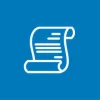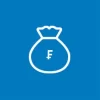The first thing about Switzerland that most newly arrived expats notice, aside from the beautiful scenery, are the high prices you pay on just about everything. There’s compulsory health insurance to think about, car insurance if you have a car, plus the challenge of finding a decent place to live, with all the obligations that involves.
As a newcomer it’s easy to end up paying a lot more than you really need to for many goods and services, simply because you don’t understand how things work. This is especially true if you don’t speak the local language.
This moneyland.ch guide for expats in Switzerland lists 9 simple financial tips for newcomers that can save you a lot of money and stress:
1. Learn how to save on public transport
Unless you arrive in Switzerland by car, or are handed a company car on arrival, you will probably use public transportation, at least for a while. Switzerland has a very efficient public transport system, but the ticket prices are enough to make your eyes water.
The good news is that as soon as you register in Switzerland, you can take advantage of a number of major cost-cutting benefits. The Half Fare Travel Card (German: Halbtax, French: Abonnement demi-tarif), now integrated into the Swisspass card, is the first thing you need to get ahold of. With this card in your wallet, you can buy and use half-price tickets (somewhat more than half-price for shorter distances). If you have children, getting them each a Junior Travelcard (30 francs per year) is a smart move, as it lets them accompany you on public transportation at no extra charge.
Monthly passes are available either for a specific route (your way to work and back, for example) or for the entire canton. Combined with the Half Fare Card, using these passes typically works out much cheaper than buying individual tickets. The GA Travelcard (German: Generalabonnement, French: Abonnement général) gives you unlimited access to public transport (trains, buses, boats, many cable cars) anywhere in Switzerland for a whole year. An annual GA Travelcard can be paid for in monthly installments or as a lump sum in advance (in which case a discount applies). While this pass is a big investment, if you commute long distances to your workplace, it is worth noting that the cost of a GA Travelcard is similar to those of cantonal passes and monthly passes for single commute lines.
You can find more ideas in the moneyland.ch guide to saving on transportation in Switzerland.
2. Get liability and household insurance
Everything may be bigger in Texas, but everything is more expensive in Switzerland. If you accidentally put a heavy dent into the parquet floor of your rented home or your kid scrapes a car with their bike, you could end up paying dearly (and we’re talking in the thousands of francs).
That’s why getting liability and household insurance is a very smart (and urgent) financial move for new arrivals in Switzerland. Policies are relatively cheap, and insurers generally pay out benefits without much fuss.
You can easily find the best premiums based on the benefits you need in moneyland.ch’s interactive and unbiased liability insurance comparison and household insurance comparison tools.
3. Choose your car insurance policy wisely
Many expats will tell you that Swiss car insurance providers are somewhat uncompetitive and that you will likely be quoted similar premiums by every auto insurance company.
But in fact, there are notable differences in premiums charged and benefits offered. As a rule, Swiss car insurers are quite accommodating in the event that you need to claim a benefit. The main differences between insurers will be the price you pay in relation to the benefits you get.
Using an online car insurance comparison will help you get an idea of what you can expect to pay for the coverage you need. While it may be convenient to take out the insurance policy recommended by the dealer, you should understand that dealers recommend insurance based on the commissions they receive, and not the benefits you receive. Taking the time to do your own research can save you a lot of money over the long-term.
4. Compare mobile, broadband, landline and TV plans
Getting a Swiss SIM for your smartphone and getting TV, broadband and landline connections in your home will probably be one of your priorities after arriving in Switzerland. But be aware that there are big differences in both service and pricing in the Swiss telecom market. Before you tie yourself in to an expensive telecom bundle, take time to compare individual plans and bundles to make sure they meet your needs and to get the best deal possible. The moneyland.ch telecom comparisons provide detailed insights into the services and costs of Swiss telecom, TV and streaming services.
5. Choose your bank account carefully
The idea of having a Swiss bank account still lends a certain air of prestige, but when you live in Switzerland, your bank account takes on the same practical functions as it would anywhere else. Although basic banking in Switzerland isn’t hugely more expensive than it is in most countries, account fees and charges can vary widely from one bank to another.
You may find yourself paying high fees for certain types of transactions. If you regularly send money or make payments outside of Switzerland, you will want to find a bank that charges minimal fees for international transactions. For example, many Swiss banks don’t charge for SEPA money transfers to accounts in euro-zone countries, but some do add a fee.
Many banks offer more favorable fees for credit cards and debit cards when you get these as a bundle with your checking account and other services. You can easily find the best Swiss bank package deals that match your criteria using the moneyland.ch bank package comparison tool.
6. Get to know Swiss retirement savings options and their tax benefits
Understanding your retirement savings options in Switzerland is very important, especially if you don’t plan to stay in Switzerland permanently.
Social security old age and survivors insurance (category 1a): In Switzerland, all residents must subscribe to compulsory social security insurances, including old age and survivors’ insurance (OASI). Unemployed individuals must pay a minimum annual premium or a premium based on their personal wealth if applicable. Employed individuals pay premiums based on their salaries. These are normally deducted directly from your salary by your employer, and your employer must cover half of premiums due. The social security pension you receive when you retire is based on the length of time over which you paid premiums and the size of the premiums paid (based on how much you earn). OASI premiums are tax deductible and no wealth taxes are levied on OASI benefits. Citizens of countries with which Switzerland has a social security agreement (EU and EFTA member countries, the United States, Canada, Turkey, Israel, Croatia, Serbia, Montenegro, Bosnia and Herzegovina, Macedonia, San Marino) cannot withdraw OASI benefits upon leaving Switzerland but receive an OASI pension during retirement. Special provisions apply to citizens of Australia, the Philippines and Chile. Citizens of other countries can withdraw their OASI benefits when they leave Switzerland.
Occupational pension fund (category 2a): When you become employed in Switzerland, your employer is required to subscribe you to a pension fund. Contributions are normally deducted directly from your salary by your employer, and your employer must match your contributions. Contributions to your occupational pension fund are tax deductible, and you do not pay wealth tax on your pension fund benefits ahead of withdrawal. Pension fund benefits can be withdrawn ahead of retirement for the purpose of purchasing a home (terms and conditions apply) and under some other circumstances. If you leave Switzerland and relocate to a country which is not a member of EFTA or the EU, you can withdraw your 2a occupational pension fund benefits and take them with you (a one-time withholding tax applies to withdrawals, at a lower rate than income tax). Otherwise, the benefits must be placed in a Swiss vested benefits account or invested in a vested benefit life insurance policy. The moneyland.ch vested benefits account comparison helps you find the accounts with the best interest rates.
Private retirement savings (category 3a): In Switzerland, you have the option of saving additional money for retirement using 3a retirement accounts, 3a retirement funds and 3a life insurance policies. Contributions to 3a retirement savings are tax deductible up to an annual limit (this limit is announced every year). 3a retirement savings are not taxable ahead of withdrawal. You can withdraw 3a savings ahead of retirement for the purpose of buying a home and under certain other circumstances. When you leave Switzerland, you can withdraw your 3a savings and take the money with you regardless of your citizenship or which country you relocate to. Here too, a one-time tax applies to withdrawals, but this is lower than regular income tax. The moneyland.ch 3a retirement account comparison makes finding the accounts with the best interest rates easy.
7. Understand the health insurance system before you sign up
Getting basic health insurance coverage is obligatory for anyone living in Switzerland, and you will have to take out compulsory health insurance within the first 3 months after becoming a resident (the insurance covers you from day 1 retroactively). There are some exceptions which are explained in the moneyland.ch guide to health insurance for expats.
The first thing to understand is that no matter which insurance company you go with, and there are dozens in Switzerland, the coverage provided by Swiss compulsory health insurance will be identical because it is mandated by the Swiss federal government. The only real differences are the premiums you pay, the customer service you get, and the proportion of medical expenses which are settled using direct settlement rather than indirect settlement.
Depending on which deductible you choose (300 – 2500 francs for adults, 0 – 600 francs for children), the differences in premiums charged by different insurance companies can be as high as several hundred francs per month! Comparing is key to avoid paying more than necessary for the same basic coverage. The completely unbiased compulsory health insurance comparison tool on moneyland.ch makes it easy to find the cheapest offer for compulsory health insurance and takes all costs into account. It also provides customer satisfaction ratings and indicates the average portion of medical expenses covered by direct settlement. The comparison also gives you the option of calculating the optimal deductible for you based on your anticipated medical expenses.
If you are employed, your employer is required to take out accident insurance on your behalf. In this case, you can place the accident coverage you get from compulsory health insurance on hold, which lowers your compulsory health insurance premiums.
Supplementary health insurance coverage (private, optional health insurance) is more complicated, and this is where many expats end up wasting a pretty penny.
For example, health insurance companies will often try to sell you additional general hospital ward insurance coverage or (expensive) semi-private ward hospital insurance. But general ward hospital stays within your canton of residence are already covered by your obligatory insurance policy, and out-of-canton stays for emergency treatment or treatment that isn’t available in your canton are also already covered. For most people, the hospital coverage provided by compulsory health insurance is sufficient.
If you frequently stay at the hospital, for example, you may appreciate the guarantee of staying in a private ward or semi-private ward. Being able to choose which of the hospital’s doctors will oversee your case is a benefit you get with private and semi-private hospital insurance policies that might appeal to some patients. If you really feel that the high cost of supplementary hospital coverage is worth it in your case, you can use the moneyland.ch hospital insurance comparison to find the best deal on the coverage you need.
Supplemental outpatient insurance extends the health insurance coverage you get with compulsory health insurance for home-based treatment and for emergency medical care while traveling outside of Switzerland. It normally comes bundled with additional insurance perks (annual benefits towards gym memberships, dental insurance, homeopathy, glasses and contact lenses, etc.) that will benefit you in Switzerland as well.
Compulsory Swiss health insurance covers the costs of emergency medical care abroad up to double the cost of treatment at a hospital in your canton of residence. This is sufficient coverage for medical emergencies in most countries, but if you travel to the United States, Japan, and other countries with exceptionally high healthcare costs, getting supplementary outpatient insurance which covers the balance of what is not covered by compulsory insurance can be a good investment. Note that Swiss outpatient insurance policies are typically bundled with many other benefits which you may or may not need or want. The moneyland.ch supplemental health insurance bundle comparison makes comparing premiums and finding policies which match your needs quick and easy.
8. Know when to use a credit card, debit card or cash
If you are moving from a country where credit cards are widely used, you might be in the habit of using your credit card to pay for everything from a single pack of gum to your cross-border shopping. Switzerland is largely a cash-based society, and although credit cards can be the best choice for certain types of purchases (to benefit from insurance perks or to earn rewards, for example), there are times when paying with cash or a debit card rather than credit cards can save you money.
Some merchants in Switzerland slap on a surcharge when you use a credit card to pay because credit card companies charge them hefty merchant fees for the service. Always make sure that merchants do not add a surcharge before using your credit card to pay. Debit cards are much more widely used in Switzerland and merchants which accept them do not add surcharges.
If you visit or shop in France, Germany or other neighboring countries, make sure you understand that all Swiss credit cards charge foreign transaction fees. The moneyland.ch guide to using Swiss payment cards abroad explains how to avoid foreign transaction fees. Many Swiss banks let you withdraw euros at their Swiss ATMs and some Swiss banks provide foreign currency credit cards and foreign currency private accounts. Always avoid using credit cards to get cash advances both inside and outside of Switzerland as the cash advance fees charged by Swiss credit card issuers are painful.
You can use the interactive credit card comparison on moneyland.ch to find the Swiss credit card you need based on costs, rewards, whether you want to use it in Switzerland or abroad (or both), and many more criteria.
9. Get familiar with tax deductions
As an expat temporarily living and working in Switzerland, you will normally have your taxes deducted directly from your salary. The moneyland.ch guide to the tax at source for expats provides more information on this withholding tax. However, you can still claim tax deductions every year and get tax refunds by requesting and submitting a special tax form. The Swiss tax system is complex, with taxes being levied on federal, cantonal and municipal levels, and numerous possible tax deductions are available. The moneyland.ch guide to Swiss tax deductions lists the most important deductions.
More information:
Financial comparison tools for expats
Expat guide to Swiss health insurance
Mortgage comparison
Securities broker comparison
Wealth management comparison
Swiss health insurance cover for treatment abroad
International Health Insurance Explained
New to Switzerland: The A to Z Guide to Saving from Day One













